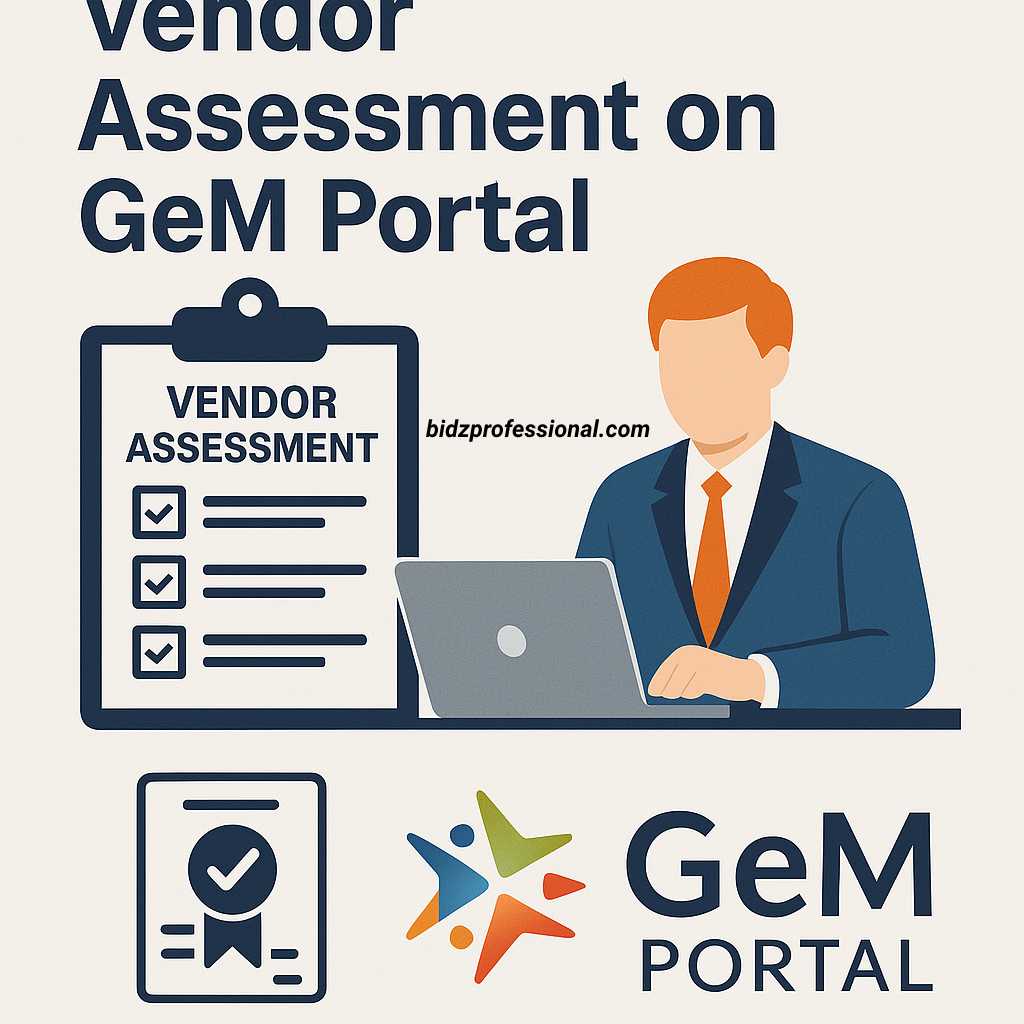If you’re a business planning to supply goods or services to government buyers in India, you’ve likely heard of the Government e-Marketplace (GeM)—a one-stop platform to make procurement more efficient, transparent, and inclusive. But before you dive in, there’s one crucial step that could significantly influence your success: the Vendor Assessment on the GeM Portal.
So, what is this assessment all about? Why does it matter? And more importantly, how can you simplify it or even qualify for an exemption? Let’s unpack it all.
What is Vendor Assessment on the GeM Portal?
The GeM Vendor Assessment is a quality check that ensures suppliers meet the required standards before they can list products under the OEM (Original Equipment Manufacturer) tag or sell in high-value categories. This evaluation is managed by a third-party assessment agency (currently QCI) and covers everything from manufacturing capabilities to quality control processes.
Think of it as your business’s passport to credibility in the government procurement world.
OEM vs. Deemed OEM: What’s the Difference?
Before you proceed with the assessment, it’s essential to understand the distinction between an OEM Vendor and a Deemed OEM on GeM.
- OEM Vendor Assessment: This applies to businesses that manufacture their products. To register as an OEM, companies must undergo a detailed Vendor Assessment on the GeM portal. Once approved, they gain the coveted “OEM” tag, increasing their visibility and trustworthiness among buyers.
- Deemed OEM Vendor Assessment on GeM Portal: This category was introduced for brands or companies that may not manufacture directly but hold the brand ownership or have an exclusive authorization to sell the brand’s products. These vendors still undergo assessment, but the criteria differ slightly.
Both pathways lead to enhanced credibility, but knowing which category you fall under makes the process smoother.
Why Bother with Vendor Assessment?
Here’s the deal: completing the Vendor Assessment on GeM Portal offers a competitive edge. Once assessed and verified:
- You can list products under your brand name.
- Your products are prioritized in search results.
- Buyers are more confident in your offerings.
- It’s a pre-qualification for participating in many tenders.
Skipping this step (when you’re required to complete it) could mean missed opportunities, restricted listings, and limited buyer trust.
Is There Any Way Around It? Understanding Vendor Assessment Exemption
Now comes the golden question—Can your business skip the assessment altogether?
Yes, but only under certain conditions. The Vendor Assessment Exemption applies if:
- You’re offering services (not products).
- You’re a Central or State Government organization.
- You’re an MSME registered with the NSIC for the relevant category.
- You’re selling products already listed by an OEM you represent.
In these scenarios, you may not need to go through the formal assessment. However, it’s wise to double-check eligibility on the GeM portal or consult with a GeM expert before assuming you’re exempt.
Step-by-Step: Getting Assessed on GeM
Here’s a simplified roadmap for businesses preparing for OEM or Deemed OEM Vendor Assessment:
- Register on GeM: Create your account and fill out basic company details.
- Select Assessment Type: Choose between OEM and Deemed OEM based on your business model.
- Upload Documents: Submit licenses, manufacturing or branding evidence, quality certifications, etc.
- Assessment by QCI: The Quality Council of India evaluates your submission, and may conduct site visits.
- Approval or Feedback: Once approved, you’re marked as an OEM or Deemed OEM on the portal.
The entire process usually takes 2–3 weeks, depending on document accuracy and category complexity.
Final Thoughts
The Vendor Assessment on GeM Portal might seem like just another bureaucratic hurdle—but in reality, it’s a gateway to unlocking real opportunities in government procurement. Whether you’re applying for a full OEM Vendor Assessment or going through the Deemed OEM Vendor Assessment on GeM Portal, investing time in the process can set your business up for long-term success.
And if you qualify for a Vendor Assessment Exemption, even better—but make sure your paperwork backs it up.
In the world of government business, credibility is currency. And the GeM Vendor Assessment is one of the smartest ways to earn it.









